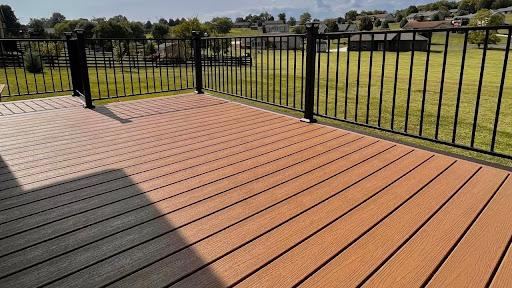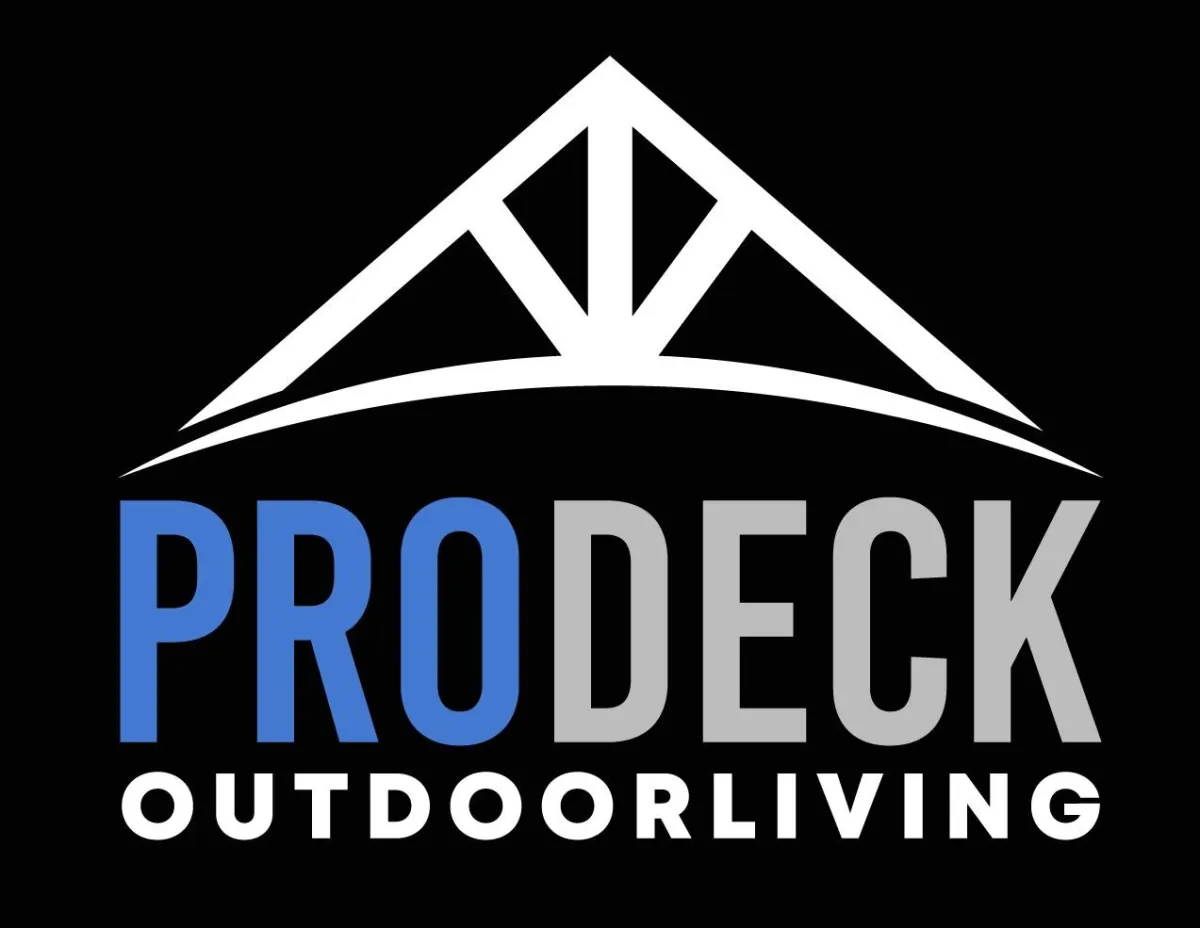Knoxville's #1 Deck & Patio cover solutions
PRODECK OUTDOOR LIVING BLOGS

How To Secure A Post To A Wooden Deck?
To secure a post to a wooden deck, use post bases or anchors designed for deck applications, and attach the post to the deck with lag bolts or screws, ensuring the connections are tight and stable to provide solid support.
Attaching a post to a wooden deck may seem straightforward, but it requires precision and the right techniques to ensure stability and safety. Whether you're constructing a new deck, adding a railing, or installing a pergola, securely fastening the posts is crucial for a long-lasting and robust structure. This article explores the best methods to achieve a secure attachment, ensuring your deck not only looks great but performs safely over time.
For expert advice and professional deck building services in Knoxville, Tennessee, ProDeck Outdoor Living is your go-to deck builder, dedicated to providing top-notch craftsmanship and client satisfaction.
Key Takeaways
Post Anchors: Easy installation with a clean look; ensure to use the correct size and hardware.
Blocking Between Joists: Provides a strong, secure connection; use galvanized bolts and deck screws for durability.
Rim Joist Attachment: Ideal for adding posts along the perimeter; use angle brackets and lag screws for maximum stability.
Local Building Codes: Always adhere to local regulations to ensure safety and compliance.
Professional Assistance: For optimal results, consider hiring a skilled deck builder like ProDeck Outdoor Living.
How to Securely Attach a Post to a Wooden Deck
Using Post Anchors
Mark the Center: Start by marking the exact center of where the post will be placed using a speed square.
Drill the Hole: Use a hole saw to drill a hole that matches the size of the post anchor.
Insert the Anchor: Place the post anchor into the hole, using a rubber mallet or hammer to drive it in as far as possible.
Secure the Post: Pre-drill the guide holes at the base of the post anchor and attach the post using the included hardware.
Optional Skirt: For a polished look and additional protection, use a Deck Post Anchor Skirt to cover the connection.
Attaching to Blocking
Position the Post: Clamp a piece spanning between two deck joists, then set the post on top.
Add Blocking: Place a piece of blocking between the joists and clamp it against the post.
Drill Holes: Mark and drill holes 2" down from the top and 2" up from the bottom of the blocking.
Insert Bolts: Use 1/2" x 8" galvanized hex bolts, washers, and nuts to secure the blocking.
Add Tension Tie: Attach a Deck Tension Tie to the top bolt and secure it to the joist with screws.
Screw the Blocking: Fasten the blocking to the joists on each side using 3 1/2" deck screws.
Attaching to a Rim Joist
Remove Decking: Take off the outside decking board.
Install New Rim Joist: Nail a new rim joist to the existing rim with 16d galvanized nails.
Secure with Brackets: Use galvanized angle brackets to secure each post-rim connection.
Attach the Post: Use lag screws or bolts to attach the post to the rim joist.
Local Building Codes
Adhering to local building codes is crucial for ensuring the safety and legality of your deck project. These regulations cover everything from structural requirements to safety measures. Always check with local authorities to confirm that your deck complies with the necessary standards.
Verify the latest codes before starting.
Ensure your design meets structural requirements.
Obtain necessary permits and inspections.
Professional Assistance
For the best results in securing a post to your deck, consider enlisting the help of a skilled deck builder. ProDeck Outdoor Living offers expertise and craftsmanship to ensure a flawless installation. Professionals bring knowledge, precision, and experience to handle complex tasks efficiently.
Choose a reputable deck builder with experience.
Benefit from expert advice on design and materials.
Enjoy a stress-free and high-quality installation.
Deck Building Materials
Choosing the right materials is critical when constructing or renovating a deck. Options like pressure-treated wood, composite decking, and cedar each offer unique benefits. Pressure-treated wood is budget-friendly and resistant to decay. Composite decking is durable and low-maintenance, while cedar offers natural beauty but requires upkeep.
Pressure-Treated Wood: Cost-effective, resistant to insects and decay.
Composite Decking: Durable, minimal maintenance, long-lasting.
Cedar: Attractive natural appearance, requires regular sealing.
Deck Maintenance Tips
Proper maintenance is vital to extend the life of your deck. Regularly cleaning, inspecting, and sealing your deck helps prevent damage and wear. Addressing minor issues promptly can avoid larger problems, ensuring the deck remains safe and visually appealing for years to come.
Cleaning: Remove dirt and debris regularly.
Inspection: Check for damage and wear.
Sealing/Staining: Protect against weathering and extend lifespan.
Choosing the Right Deck Design
The design of your deck greatly influences its functionality and aesthetics. Factors such as shape, size, and layout should match your space and lifestyle. Popular designs include multi-level decks, built-in seating, and integrated lighting. A professional deck builder can help create a design that fits your vision and complies with local codes.
Shape and Size: Adapt to your space and needs.
Multi-Level Decks: Create varied elevations and spaces.
Built-In Seating and Lighting: Enhance functionality and ambiance.
Deck Lighting Options
Effective lighting enhances both safety and ambiance on your deck. Options include deck post lights, stair lights, and rail lights. LED lights are energy-efficient, while solar lights offer easy installation. Motion-sensor and string lights add security and a festive atmosphere, improving both visibility and enjoyment.
Deck Post Lights: Illuminate posts and pathways.
Stair Lights: Improve safety on steps.
String Lights: Create a festive, inviting atmosphere.
Deck Safety Considerations
Ensuring deck safety involves using quality materials and adhering to local building codes. Regular inspections for issues like rot and loose fasteners are essential. Proper railings and gates are crucial, especially for elevated decks, to prevent accidents and ensure a secure environment for family and guests.
Quality Materials: Ensure structural integrity.
Regular Inspections: Check for damage and safety hazards.
Proper Railings and Gates: Prevent falls and enhance safety.
Frequently Asked Questions for Decks
How do you attach a post to the top of a deck?
Attach a post to the top of a deck by using post anchors, which are set into the deck surface and secured with bolts or screws. Alternatively, you can attach posts to a rim joist or use blocking between deck joists for added stability.
What is the best way to anchor a deck post?
The best way to anchor a deck post is to use post anchors or brackets specifically designed for deck posts. These can be secured to the deck framing with bolts or screws, ensuring a solid and stable attachment.
How do you secure a wooden post without concrete?
To secure a wooden post without concrete, use post anchors or brackets that are fastened to the deck or structure with bolts or screws. For additional stability, you can use blocking between joists or attach the post to a rim joist.
Do deck posts need to be anchored?
Yes, deck posts need to be anchored to ensure stability and safety. Proper anchoring prevents movement and potential collapse, and it helps the deck meet building codes and standards.
What is the best way to secure decking?
The best way to secure decking is to use deck screws or hidden fasteners. Deck screws provide a strong hold and prevent boards from shifting, while hidden fasteners offer a cleaner look without visible screws. Ensure screws or fasteners are rust-resistant and properly spaced.
Your Deck's New Foundation Starts Here with ProDeck Outdoor Living
Securely attaching posts to your wooden deck is vital for a sturdy and safe structure. By following the methods outlined, you can ensure a long-lasting and stable deck. For expert deck building services in Knoxville, turn to ProDeck Outdoor Living.
Contact us now at ProDeck Outdoor Living for a free quote and discover how our expert team can bring your deck vision to life. With our commitment to excellence and customer satisfaction, your perfect deck is just a call away. Reach out now and let us build the deck of your dreams!
BLOG
Why We Care About Our Clients at ProDeck Outdoor Living
At ProDeck Outdoor Living, our passion goes beyond building beautiful outdoor spaces. We care deeply about our clients because we believe that a home’s outdoor area should be more than just a deck or patio—it should be a space where memories are made, laughter is shared, and moments of peace and relaxation are enjoyed. Our commitment to excellence is rooted in our dedication to the people we serve.
Our Why: Creating Meaningful Outdoor Spaces
We do what we do because we understand the value of outdoor living. Whether it’s a backyard deck where a family gathers for summer barbecues, a pergola that provides shade for afternoon reading, or a custom patio that serves as the heart of celebrations, we take pride in transforming outdoor areas into places of comfort and connection. Our goal is to design and build spaces that enhance our clients’ lifestyles and bring their visions to life.
Building More Than Just Structures
To us, every project is personal. We take the time to listen to our clients, understand their needs, and collaborate closely to bring their dreams to reality. Every detail matters because we know that a well-crafted outdoor space can add joy and value to a home. Our team’s dedication to quality craftsmanship and customer satisfaction is what sets us apart. We treat every project as if it were for our own home, ensuring that we deliver not just a deck or patio, but an experience that exceeds expectations.
A Commitment to Trust and Transparency
Trust is at the core of what we do. From the initial consultation to the final touches, we believe in clear communication, honesty, and reliability. Our clients trust us to bring their outdoor visions to life, and we take that responsibility seriously. That’s why we work with high-quality materials, skilled professionals, and a customer-first approach to ensure that every project is completed with precision and care.
Why We Care
At the heart of our work is a genuine passion for improving lives through outdoor living. We care about our clients because we believe in the power of well-designed spaces to create happiness, relaxation, and unforgettable moments. Seeing the joy on a client’s face when they step onto their new deck or patio for the first time is why we do what we do.
Thank you for trusting ProDeck Outdoor Living to bring your outdoor dreams to life. We’re
honored to be a part of your journey in creating spaces that truly feel like home.
THE BEST IN OUTDOOR LIVING & CONSTRUCTION
Request An Estimate To Get Started Today!
Service Areas
West Knoxville
Seymour
Seviers
Farragut
Solway
Louisville
Maryville
Oak Ridge
Lenoir City
Copyright © ProDeck Outdoor Living. 2024. All Rights Reserved. Privacy Policy. Terms & Conditions. Web Design by Fused Media


